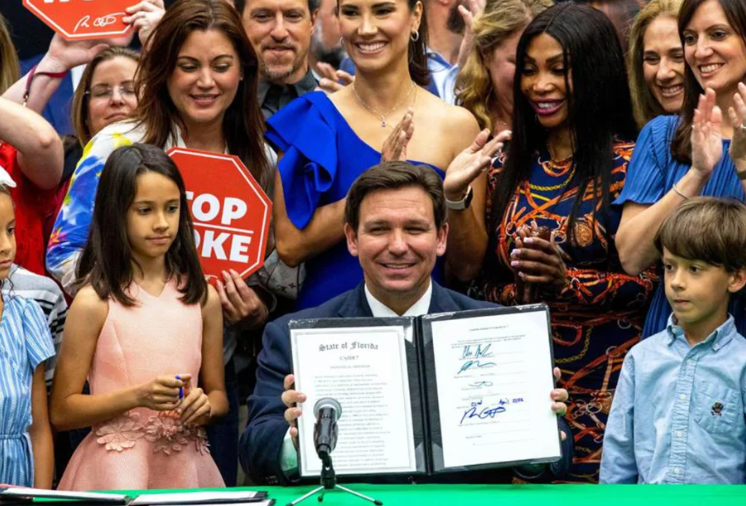Florida Governor Ron DeSantis finds himself at odds with the federal courts over the contentious “Stop WOKE Act,” a key component of his campaign against what he terms “woke ideology.”
The 11th US Circuit Court of Appeals recently upheld a lower court’s decision to block parts of the Act, citing concerns about its infringement upon free speech rights.
The Act, signed into law by Governor DeSantis in 2022, aims to curtail what it considers divisive workplace activities and trainings based on notions of privilege or oppression related to race, sex, color, or national origin. However, the courts have deemed certain provisions of the law unconstitutional, sparking a legal battle that has captured national attention.
In response to the appellate court’s ruling, Governor DeSantis’s office expressed disappointment, arguing that the decision allows companies to promote what it views as racially discriminatory ideologies under the guise of free speech. The Governor’s team vows to explore all available options for appealing the decision, highlighting their commitment to protecting Floridians from what they perceive as hostile work environments.
The legal saga began when US District Court Judge Mark E. Walker issued an injunction in August 2022, blocking enforcement of parts of the Stop WOKE Act. Judge Walker’s ruling centered on concerns that the Act violated both the First and Fourteenth Amendments by discriminating based on viewpoint and being impermissibly vague.
In its recent decision, the 11th Circuit Appeals Court affirmed Judge Walker’s ruling, with Judge Britt Grant, appointed by former President Donald Trump, authoring the opinion. Judge Grant emphasized the importance of safeguarding free speech, stating that Florida’s law unlawfully targets certain viewpoints and restricts open dialogue on contentious issues.
Judge Walker’s initial injunction drew attention for its colorful language, likening Florida’s interpretation of the First Amendment to a “parallel dimension” akin to the Upside Down in the popular TV series “Stranger Things.” He criticized Florida’s attempt to stifle opposing viewpoints, asserting that the First Amendment does not permit censorship based on subjective notions of offensiveness.
The appellate court echoed Judge Walker’s concerns, emphasizing that the government should not dictate the terms of public discourse or silence dissenting voices. They rejected comparisons between the Stop WOKE Act and Title VII of the Civil Rights Act, arguing that while both seek to address discrimination, the former improperly restricts speech.
Furthermore, the court highlighted the Act’s selective protection of approved speech and concepts, effectively censoring viewpoints that diverge from the state’s position. This, they argued, constitutes a dangerous infringement on free expression, undermining the marketplace of ideas essential for a healthy democracy.
Critics of the Stop WOKE Act applaud the courts’ decisions, viewing them as a crucial defense of free speech and individual autonomy. They warn against government overreach and the chilling effect of laws that seek to regulate speech based on subjective criteria.
Governor DeSantis’s continued pursuit of the appeal reflects the broader debate surrounding the limits of free speech and the role of government in regulating workplace discourse. As the legal battle rages on, it underscores the enduring tension between protecting individual liberties and addressing societal issues such as discrimination and inequality.

